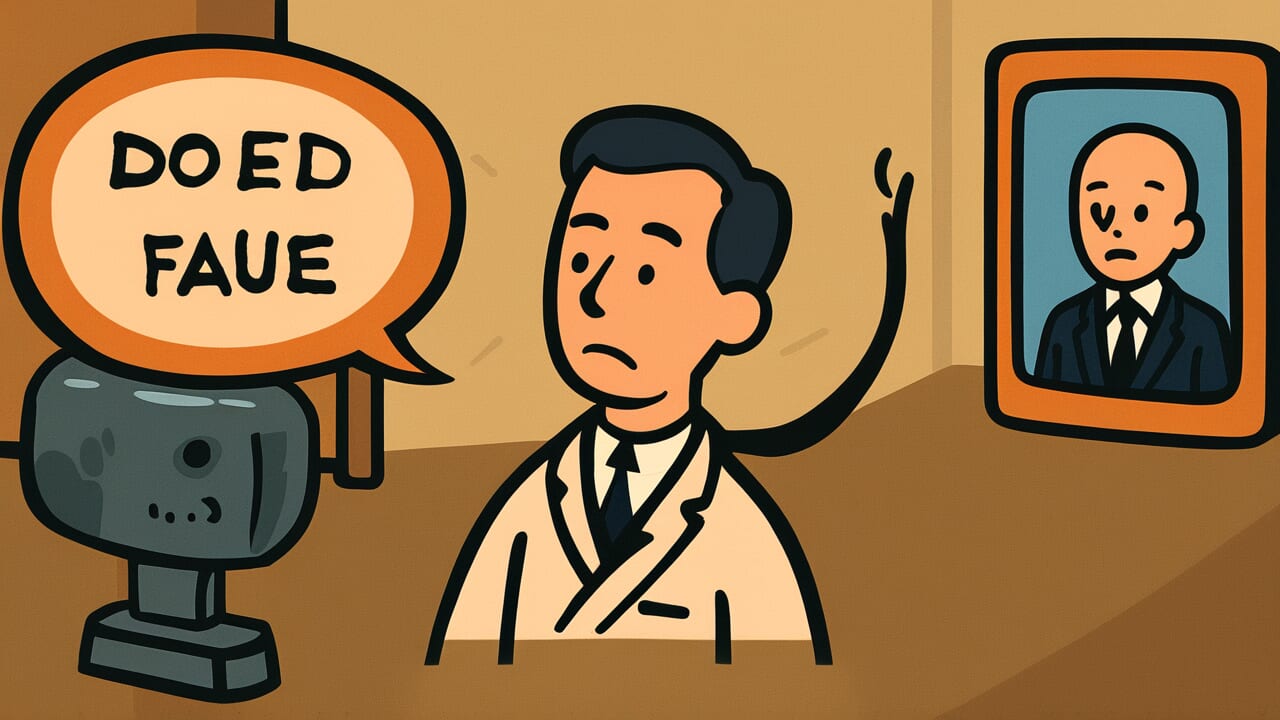How to Read “Lies to the dead”
Shinin ni mōgo
Meaning of “Lies to the dead”
“Lies to the dead” is a proverb that warns against falsely accusing deceased people of wrongdoing. Dead people cannot argue back or defend themselves.
This saying points out how cowardly it is to blame someone who is in such a defenseless position. It condemns pushing responsibility onto them or framing them for things they didn’t do.
People use this proverb when someone tries to hide their own failures or misconduct by blaming someone who has already died.
They make claims like “the deceased person did it” or “the dead person said so.” These statements cannot be verified, and the proverb strongly condemns using them to escape responsibility.
Even today, when scandals come to light in organizations, some people try to push blame onto deceased colleagues.
This proverb teaches that such behavior is among the most shameful things a person can do. It shows a deep ethical view that we must protect not only the dignity of the living, but also the honor of the dead.
Origin and Etymology
No clear written records explain the origin of “Lies to the dead.” However, we can make interesting observations from the words that form it.
The word “mōgo” (lies) likely comes from Buddhist terminology. Buddhism teaches about “ten evils,” which are ten bad actions to avoid. “Mōgo,” or lying, is one of them.
In Buddhism, lying is considered a serious sin. It destroys human relationships and damages trust in society.
This proverb probably emerged from Japan’s traditional views about the dead. Deceased people cannot argue back or defend their honor.
People recognized that lying to blame such defenseless beings is even more cowardly than lying to the living.
Japan has long had a culture of respecting the spirits of the dead. Disrespecting the deceased has always been a strong taboo.
Falsely accusing the dead carries more than just the sin of lying. It also carries moral and religious wrongdoing. This proverb contains that understanding.
These ethical values have been passed down through generations in this simple phrase.
Usage Examples
- Pushing the blame for misconduct onto the deceased former president is a perfect example of lies to the dead
- He’s blaming his mistake on the deceased, but that’s lies to the dead and cannot be forgiven
Universal Wisdom
“Lies to the dead” contains deep insight into human weakness and cowardice. Why do people try to blame the dead, who cannot argue back?
It happens because the desire for self-preservation overpowers conscience and moral sense.
When cornered, humans tend to sacrifice others to protect themselves. If they can choose their victim, they think the “safest” option is someone who won’t fight back.
The dead are the ultimate defenseless targets. Our ancestors sharply understood this cowardly psychology.
But this proverb has been passed down not just to point out cowardice. It teaches about the foundation of trust in human society.
If falsely accusing the dead were acceptable, no one could die in peace. People would fear having their honor damaged not only while alive, but even after death.
This proverb shows a truth: protecting the dignity of both the living and the dead maintains trust throughout society.
It acknowledges human weakness while pointing toward the moral heights we should reach. That is the universal wisdom packed into these few words.
When AI Hears This
Shannon, the founder of information theory, defined communication as “an act that reduces uncertainty in the sender’s information.” In other words, reducing the “unknowns” in the receiver’s mind is the essence of information transfer.
But talking to the dead creates a state where the receiver’s uncertainty isn’t zero, isn’t infinite, but simply “doesn’t exist.”
This isn’t just pointless talk. From an information theory perspective, it’s an extremely unusual phenomenon.
Even in normal one-sided monologues, information circulates because you become your own receiver. When talking to a wall, sound waves physically reach it as signals.
But with the dead, even if signals arrive, the processing system has stopped functioning. The information disappears before it can be established as information.
What’s interesting is that this proverb focuses on the act of “lying.” Lying is a sophisticated information strategy that intentionally manipulates the receiver’s perception.
But when the other party cannot process information, the strategy itself becomes invalid. In other words, for a lie to work, you need the prerequisite of “a receiver who might be deceived.”
Modern social media posts that no one sees, or messages sent repeatedly to canceled email addresses, have the same structure.
Communication without confirmation of receipt becomes not information, but just noise.
Lessons for Today
This proverb teaches modern people that difficult situations test our character. When scandals or failures happen, everyone feels tempted to blame someone else.
Especially if you shift responsibility to someone who can no longer argue back, it might seem like the problem is solved on the surface.
But such actions are always seen by those around you. People who see you blame the dead will lose trust in you. And most importantly, you will lose the ability to trust yourself.
In modern society, responsibility is questioned in many situations: organizational scandals, family troubles, and more.
In such times, have the courage to speak the truth, even if it puts you in a disadvantageous position. That is the way of life this proverb teaches.
Protecting the honor of those who cannot argue back actually protects your own dignity too.
Not losing your integrity in difficult situations is the choice that brings the greatest value to your life in the long run.
This proverb quietly but powerfully teaches us the weight of being honest.



Comments